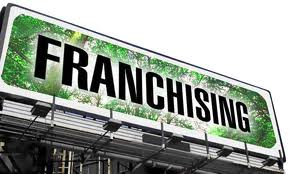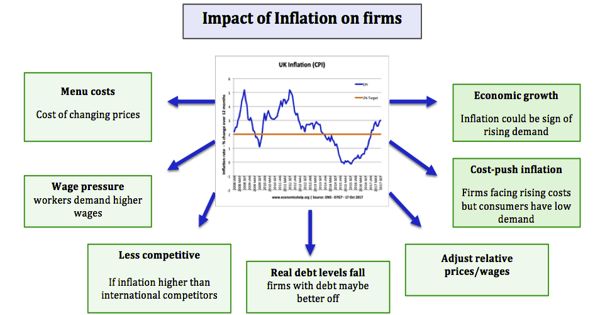Executive summary
To understand the effects of globalization and the challenges it presents is assisted through the use of modern communication technologies and also the ability to expand into newly opening local markets and exposing them to new methods of production and marketing. However new challenges often occur, such as the use of managerial insight and intelligence, to examine a variety of different systems that will be able to compete amongst the already established “local” competition, which in some markets can prove to be extremely severe. The ability to compete, hold a strong place in the market and position the company accordingly, can be achieved by the employment of franchising. This system has an extremely successful track record and allows the user to ensure the company’s prosperity and carry it confidently into the future. One of the principal tactics in doing business in today’s current environment, particularly for SMSs, is franchising. This method has been improved ever many years through trial and error and has become a clear concise process.
In our country we see a numerous types of business and also numerous brand names. As a developing country we can hardly consume the most updated product from branded companies. International trade especially franchising helps in this respect by serving different reputed branded product at our doors.
While working with our Franchising companies we have found many points that must be noted. In our country we do not have any established law about franchising. Besides, there is no separate governing body that regulates these sorts of businesses. So, here the franchisees have to bind with each and every term and conditions set by the franchisor.
On the mirror view the franchisor may faces a lot of risks while they permit for franchising here. Often different companies are seemed to contract for everything but violets some major principles set by the franchisor. Sometimes they sacrifices quality, size of the product to earn higher return. Sometimes franchises cares very little about the franchisors’ reputation. But reputation or brand is one of the most important assets for the franchisors. This all happen because of the lack of our legal guidance.
Bureaucracy also hinders the way for this sort of investment decisions.
Origin of the report
This report on “Franchising scenario in Bangladesh” is prepared as a partial requirement of the course “Foreign Exchange & International Risk Management”, Code: F-526, instructed by Dr. M. Masud Rahman, Professor, Department of Finance, University of Dhaka.
Data source
In our report, we have used both primary & secondary data. We collected primary data by surveying two of the outlets of Chicken king. We also collected information from different website and magazine or other publications. Especially different websites including website of chicken king were helpful in the data collection process.
FRANCHISING
A franchise is a right granted to an individual or group to market a company’s goods or services within a certain territory or location. The International Franchise Association (IFE) defines a full business format franchise as – “A franchise operation is a contractual relationship between the franchisor and the franchisee in which the franchisor offers or is obliged to maintain continuing interest in the business of the franchisee in such areas as know-how and training, wherein the franchisee operates under a common trademark, format or procedure owned or controlled by the franchisor, under which the franchisee has or will make a substantial capital investment in his business from his own resources.”
Some examples of today’s popular franchises are McDonald’s, Subway, Domino’s Pizza, and the UPS Store. Many people associate only fast food businesses with franchising. In fact, there are over 120 different types of franchise businesses available today, including automotive, cleaning & maintenance, health & fitness, financial services, pet-related franchises etc.
Different type of franchise business
There are four types of such business:
The Product Franchise
In this case the manufacturer uses the franchise agreement to determine how the product is distributed by the person buying the franchise. A retail company can be provided with a franchise to distribute, for example, a range of tyres. The franchisee can utilize the brand name and the trademark owned by the manufacturer to distribute or sell the car tyres. The owner of the store will pay the manufacturer a franchising fee or agree to purchase a minimum inventory to sell on to their customers. The manufacturer gets the income from the purchase of the retailer, and/or the franchise fee, and the retailer gets the benefit of the brand and experience of the franchisor.
The Manufacturing Franchise
The franchisee is permitted to manufacture the products under license and sell them using the originator’s trademark and name. They also get the benefit of the national advertising of the product they manufacture. The company owning the product gets the franchise fee and sometimes a fee for every unit sold. Examples include the food and beverage industry.
The Business Franchise Venture
The franchisee purchases and distributes the products for the franchise owner. A client base is provided by the product owner for the franchisee to maintain. Vending machines are a classic example of this, where the franchisee purchases the vending machines and distributes and services them, taking their share of the takings of the machines.
Business Format Franchise
This opportunity is very popular, and involves providing the franchisee a proven business model using a recognized product and brand. Training is provided by the franchise owner and assistance in setting up the business. Supplies are purchased from the franchisor and the franchisee pays a royalty fee. Frequently the franchisor will sell the franchisee the products or raw materials to provide the same quality of product. Most well known fast food franchises are of this type, and also many jewellers and other ubiquitous High Street names.
The franchise contract
A franchise contract refers to a legal contract in where a well established business consents to provide its brand, operational model and required support to another party for them to set up and run a similar business in exchange for a fee and some share of the income generated. The franchise agreement lays out the details of what duties each party needs to perform and what compensation they can expect.
The franchise contract consists of two main parts: 1) the purchase agreement and 2) the franchise or license agreement. For convenience, occasionally the franchise transaction is split into two stages. When this happens, some franchise companies have two contracts, one for each stage, rather than a single contract. While it isn’t necessary to have two contracts, it can be the better method where there is a comprehensive equipment and initial services package.
The purchase agreement of the contract covers:
- the franchise package
- the price
- The services to be provided.
- The franchise or license agreement covers:
- The rights granted to the franchisee
- The obligations undertaken by the franchisor
- The obligations imposed upon the franchisee
- Trade restrictions imposed upon the franchisee
- Assignment/death of franchisee
- Termination provisions.
A brief explanation of each agreement follows.
PURCHASE AGREEMENT
1. The franchise package. It consists of an equipment or inventory list. This list must contain all the items the franchisee has been told to expect. Some franchise companies regard this list as being confidential and stipulate in the contract that it must be so treated.
2. The price. The price and the manner of payment will be specified. This may be cash on signature, although rare. More often a deposit is required on signature with payment of the balance to follow on delivery of the equipment or at other stages of the transaction.
3. The services to be provided. This section outlines or lists the franchisor’s responsibilities to the franchisee. Those services the franchisor is required to provide the franchisee before he or she is ready to open for business are called the initial services. Those services the franchisor provides periodically are called continuous services. A more detailed explanation of the services provided by the franchisor is included in the next section on the license agreement.
FRANCHISE AGREEMENT
The franchise agreement is the cornerstone document of the franchisee-franchiser relationship. It is this document that is legally binding on both parties, laying out the rights and obligations of each. There is no standard form of franchise agreement because the terms, conditions, and the methods of operations of various franchises vary widely depending on the type of business involved. For example, franchises for printing, employment agencies, and automotive products will differ from the franchises for fast food service, convenience stores, or clothing.
The rights granted to the franchisee: The franchisee will be given the right as it applies to particular circumstances. As a franchisee there are certain rights that are extended.
Rights include:
- Use of trademarks, trade names and patents of the franchisor.
- Use of the brand image and the design and décor of the premises developed by the franchisor.
- Use of the franchisor’s secret methods.
- Use of the franchisor’s copyright materials.
- Use of recipes, formulae, specifications and processes and methods of manufacture developed by the franchisor.
- Conducting the franchised business upon or from the agreed premises strictly in accordance with the franchisor’s methods and subject to the franchisor’s directions.
- Guidelines established by the franchisor regarding exclusive territorial rights.
- Rights to obtain suppliers from nominated suppliers at special prices.
The obligation undertaken by the franchisor
This item in the contract tells prospective franchisees what the franchisor will do for them both before and after start-up. That is why this item frequently refers to specific contractual obligations detailed in the franchise agreement.
The obligations imposed upon the franchisee
Certain obligations are required of you by the franchisor. These obligations include:
- To carry on the business franchised and no other business upon the approved and nominated premises.
- To observe certain minimum operating hours.
- To pay a franchise fee.
- To follow the accounting system laid down by the franchisor.
- Not to advertise without prior approval of the advertisements by the franchisor.
- To use and display such point of sale advertising materials as the franchisor stipulates.
- To maintain the premises in good, clean and sanitary condition and to redecorate when required doing so by the franchisor.
- To maintain the widest possible insurance coverage.
- To permit the franchisor’s staff to enter the premises to inspect and see if the franchisor’s standards are being maintained.
- To purchase goods or products from the franchisor or his designated suppliers.
- To train your staff in the franchisor’s methods to ensure that they are neatly and appropriately clothed.
- Not to assign the franchise contract without the franchisor’s consent.
Trade restrictions
The restrictions imposed upon a franchisee may prohibit him or her from carrying on a similar business except under franchise from the franchisor, taking staff away from other franchisees, carrying on a similar business in close proximity to other franchised businesses within that chain, and continuing, after termination of the franchise contract, to use any of the franchisor’s trade names, secrets, and so forth.
Assignment of the franchisee
The franchisee should ensure that in the event of death his/her personal representative or dependent will be able to keep the business going until one of them can qualify as a franchisee, and that arrangements can be made to keep the business going until a suitable assignee can be found at a proper price.
Termination provisions
The termination of a franchise is an event heavily regulated by the franchise laws of 17 states. Franchise relationship laws in many states specify the conditions under which a franchisor may terminate or refuse to renew the franchise, imposing a standard of “good cause,” “reasonable cause” or “just cause” as defined by those laws. Minimum advance notice usually has an opportunity to cure the default and avoid terminations; notice ranges from five days to 90 days. Many states also specify circumstances under which the standard notice and cure requirements need not be met.
In view of the close working relationship that must exist between the franchisee and franchisor all provisions must be stated clearly in the contract. In this transaction, no small print should exist. Make sure, if possible, the franchise contract contains provisions that are favourable for both you and the franchisor.
Types of Franchise Agreements
The following are the key methods of franchise arrangements made globally.
Direct Franchising Format
In this franchising the franchiser grants the franchise to a franchisee by the execution of a contract and has direct control over the franchisee. The franchiser specifies operating guidelines and the policies of the franchiser, the consideration being a periodic royalty. He also provides process manuals, shares expertise, monitors and controls the operations. The advantage is that of getting a readymade and established business format that can be replicated. But the franchisees will have to work strictly within specified compartments with little room for flexibility in operations.
Subsidiary Franchising
In this case franchising is done through a subsidiary wherever laws and regulations allow foreign organizations to set up their subsidiaries. The franchiser controls the subsidiary directly. The major advantage is that the franchiser is present in the country as a corporate body. The franchise rights for retailing and dealerships are given by the subsidiary office which controls all the processes in retail and distribution.
Regional Franchising or Multiple Franchising
Here the franchiser offers franchise rights to a franchisee only for a region or an area. There are separate franchisees for each area or region in the country. This is also known as multiple franchising when more than one franchisee is given the franchise rights for the same brand. Such agreements offer the franchisee the right to open a multiple number of outlets.
Unit Franchising
The franchiser offers rights to a franchisee to open and run just one store through an exclusive agreement which involves many franchisees. It is very difficult to monitor compliance to specified standards and processes. The strength of this format is that each franchisee pays full attention to his store and its performance.
Master Franchising
Here, the franchiser grants the franchise rights to an entire country or territory and the franchisee is permitted to open franchise outlets and grant sub-franchises to others. Two agreements are generally involved — one that is entered into between the franchiser and master franchisee and the other between the master franchisee and sub-franchisees.
Chicken King- The Franchisor
Chicken King is an international fast-food franchise located in west Malaysia. It started its franchising history through opening an outlet in Deerfield, South Yorkshire, England back in 1988. Then on 24th August 2002 it got registered with Malaysian Franchise Association. From its humble beginnings, the Chicken King concept evolved and expanded. Asian consumers appreciate a western – themed chicken fast-food restaurant, with an Asian flavor.
Chicken King is a family restaurant which holds true to its tag-line “More Variety. More Value, Better Taste. It is now embarking on a ‘Global Expansion Policy’ having negotiations with potential Master Franchisees in several countries in the Asia Pacific Region, several Provinces in China and the Middle East.
Chicken King in Bangladesh- The franchisee
Chicken King, in 2002 became the first international fast-food franchise to penetrate into Bangladesh, opening its flagship outlet – a 300 seat accumulated restaurant in the prime city area of Gulshan, Dhaka city. Pizza Hut was the 2nd international chain to set foot in Dhaka opening their first outlet in late 2003.
Performance
CHICKEN KING has achieved market leadership position in Bangladesh, with the forthcoming opening of its third full-scale restaurant in Dhaka, and first outlet outside Dhaka at Cox’s Bazaar. The Chicken King Brand has gained a foothold among the affluent city dwellers in Bangladesh.
Reasons for success
Demographic
Ours is a Muslim oriented country comprising 90% Muslims of total population. So a western themed halal restaurant Chicken King got popularity very early. Besides Dhaka is a city of 14 million people, with 5% or 700,000 comprising of the well-traveled city rich, who clearly enjoy the fast food experience.
First mover advantage
Chicken King is the first to make an entry in franchising business in the fast food industry of our country. So it got the first mover advantage and positioned in the market.
Strict Halal
Chicken king products are prepared with strict halal compliance. The use of vegetable oils and other halal items in the production process to make creditworthy to the consumers.
Low cost structure
From the customer point of view the cost of chicken king products are much lower compared to that of other fast food outlets. Besides that, the set up cost is also low from the franchisee’s point of view.
Family Restaurant
The interior design is comfortable, cozy, convenient and child friendly. So it attracts a lot of customers in daily basis.
Unique flavored food
Its unique flavored profile which infuses western-themed dishes with local taste helps building customer loyalty across the city.
Quick Service Restaurant
Chicken King is a chicken based quick service restaurant which helps them to retain customers in the busy hours.
Niche Marketing
Chicken king follows niche marketing strategy. It does not compete with big names like KFC rather it follows low cost strategy which involves low investment, low start up capital and low operating cost. The end result is more value more variety and better taste.
Strategy
Chicken King follows a 5 Step Strategy to gain market share in this fast-growing sector
More Variety, More Value Better Taste
Each and every stakeholder in Chicken King make a commitment that they will strive to ensure that customers agree that Chicken King has delivered on its promise of More Variety, more Value, better Taste.
Comprehensive Site-Selection Criteria
All franchisees are given tools and techniques to evaluate the suitability of a proposed site by the parent franchisor. The site selection criteria should be adhered to in order to serve Chicken King’s pre-defined target market.
Healthier Alternatives
It is focused on attracting customers who prefer healthier options. It offers an increasingly popular range of set meals that cater to the health conscious. The chicken King Roasted Chicken coupled with home-styled side dishes and king-size fresh fruit juices will impress any calorie counter.
Saturation Point
Some believe that a number of international fast-food franchises have reached saturation point. Interestingly, research also reveals that the average consumer will frequent one fast-food restaurant 8 times a year. This trend may give room to new quick-service-restaurants like Chicken King to gain market share. Chicken King will firmly position itself as an exciting and interesting alternative to traditional fast-food franchises. Its goal is to make Chicken King the “Preferred Alternative” to traditional fast-food using QSR concepts.
Champions
Chicken king follows champion strategy which measures operational basics like cleanliness, hospitality, accuracy, maintenance, product quality, never ending improvement and speed.
Marketing Philosophy
Its marketing philosophy is based on two facts.
Firstly, it agrees that it is a new and fresh brand (which means it has less resources and brand loyalty). So, it goes for niche marketing.
Secondly, it needs to win customers over from other big competitors and has to protect its position.
The franchise agreement with Chicken king
Size of the outlet
The standard size for a Chicken king outlet is among 1500 to 3000 square ft.
Customer accommodation
Chicken king has a restriction for minimum customer accommodation in every outlet. In the major cities the outlet must accommodate 80 to 160 people at once and in the minor cities minimum 50 people. In our country Gulshan branch of Chicken king can accommodate 300 customers at once. Other 3 branches also follow these restrictions.
Financing
The franchisor (Chicken King) generally helps in franchisee’s financing process. It often takes part in equity. But in case of our country Chicken King Franchisee is fully locally financed.
Gross profit
The franchisee can charge 65% of gross profit on sales.
Royalty Payment
The franchisee has to pay 3% to 4% of gross sales per month to the franchisor as royalty which covers operational and other management support including use of the trademark of Chicken king.
Rental payment
The franchisee has to pay 15% of gross sales per month to the franchisor as rent.
Promotion Fee
The franchisee has to expend 2% of gross sales per month in the local market for advertisement and promotion.
Initial investment
The initial investment ranges approximately from USD 87500 to USD 137500 per outlet. Besides it also has several low cost concept packages to suit franchisees budget. The Cox’s bazaar wing of Chicken King has been started under low cost concept packages.
Duration of the contract
The first franchise agreement is made for term of five years. It is renewable for similar terms on the basis of performance of the outlet. All the Chicken King outlets have extended contract duration under this franchisor.
Other features of contract
- The contract is sellable by the approval of the franchisor. But the Chicken King has the first right to purchase the business for fair value.
- Provides comprehensive training in accordance to Chicken king training manual for franchises.
Legal Environment
Franchising is a very popular way that many use to grow their already successful businesses, and a few ends up going global. But there is no legislation in Bangladesh specifically related to franchising. As the relationship between a franchisor and a franchisee flows from a contract in the absence of specific governing legislation, the law of contracts as embodied in the Contract Act, 1872 and other allied Acts is applicable to a franchise agreement. Other pertinent areas of the law which are applicable to franchise agreements are:
- Intellectual Property laws
- Competition laws
- Consumer Protection laws
- Labour laws
Intellectual Property law
A franchisor is the proprietor of intellectual property rights, know-how, etc. Thus, protection of intellectual property rights is of paramount importance to any international or domestic franchisor. Foreign nationals and/or companies can protect their trade marks in Bangladesh under the Trademark Act, 2009 by registering them under the prescribed class. As yet, service marks cannot be registered in Bangladesh. Registered owners can assign to third parties the right to use the mark and are not mandated to use the marks personally. The assignment agreement must be registered at the office of the Trade Marks Registry. By registering a user agreement, the owner prevents the user from getting a right to be the registered proprietor of the mark through use.
Franchisors can protect their manuals containing the entire technique of establishing and running the business, videos relating to the use of the product, etc. under the Copyright Act, 2000. Civil remedies for infringement of copyright include injunction, damages and accounts of profits made by the defendant by violating the copyright. In addition, criminal remedies such as imprisonment for a period between six months and three years are also available.
Competition laws
Every franchise agreement incorporates highly restrictive terms which would bring it within the purview of the Monopolies and Restrictive Trade Practices ordinance, 1970 and lay it open to scrutiny by the Director General of Investigation & Registration or the MRTP Commission. Restrictive trade practice, as defined, means “a trade practice which has or may have the effect of preventing, distorting or restricting competition.” Thus, the first inquiry under the MRTP ordinance is into the restrictive nature of the trade practice as it relates to the effect on competition. Also, since the main purpose of the ordinance is to protect the public, an inquiry into the effect on public interest is always made. Restrictive trade practice, as defined, means “a trade practice which has or may have the effect of preventing, distorting or restricting competition.” Thus, the first inquiry under the MRTP ordinance is into the restrictive nature of the trade practice as it relates to the effect on competition. Also, since the main purpose of the MRTP ordinance is to protect the public, an inquiry into the effect on public interest is always made. Considering the growing importance of franchising the Bangladeshi Government should consider enacting a specific statute to curtail the application of the MRTP Act to franchising agreements.
Consumer Protection laws
The Consumer Protection Act 2009 substantially impacts the development of franchising in Bangladesh. It comes into play with regard to civil wrong and other actions arising from sale of defective goods. The issue is if a defective product sold by a franchisee causes injury to a consumer or causes damage to the consumer’s property, then does the consumer have recourse to the franchisor and the franchisee or both. The answer to this depends upon factors such as the degree of control exercised by the franchisor, the distance between the franchisor and the franchisee geographically, and the equipment and know-how supplied to the franchisee by the franchisor in relation to the product.
Labour laws
No franchising contract can derogate from the countless Bangladeshi labour laws. Labour laws governing the day to day conditions of employment and termination of employment when an outlet is shut down or the business is sold are particularly relevant in the franchising context.
Country-level factors
Country-level factors include host country legal restrictions, political risk, cultural distance/national culture, corruption, institutional characteristics, policy stability and market size
Governance, institutions and regulation in Bangladesh
Regulatory institutions in Bangladesh are weak, less capable and enjoy less political support to perform their jobs properly. Institutions are ridden with inherent problems; there remain administrative troubles and lack of transparency and other irregularities. Bangladeshi government relies largely on under-equipped and unsupported independent regulators to perform their tasks that are beyond their capabilities. Past research shows that investors face high transaction costs due to unclear regulatory frameworks, inefficient bureaucracy, underdeveloped court systems and corruption. Bangladesh is no exception. Institutions are ridden with inherent problems; there remain administrative hassles, and lack of transparency and other irregularities. The highly centralized political and administrative system weakens the Government’s capacity to deliver and monitor services. Transparency International Bangladesh (TIB) has ranked Bangladesh the most corrupt country in the world for five consecutive years. The Heritage Foundation Index of Economic Freedom survey, 2007 reveals that corruption serves as a nontariff barrier in Bangladesh. Off-the-record payments by firms result in an annual loss of 2-3% of GDP. Lack of competition policy and a proper body (such as the ACCC in Australia) to ensure fair trade practices by restraining anti-competitive practices has been one of the institutional weaknesses in Bangladesh. The politicization of judicial agencies, through appointment of loyalists to key positions by governments, has adversely affected rule-based governance. Institutional weakness, corruption and firms’ lack of confidence in the judicial system also speaks of poor governance. Bangladesh suffers from lack of policy stability. It is lacking in policy continuity as it has experienced abrupt policy changes in the past. There is lack of policy continuity that arises whenever a government changes hinders the flow of FDI. Protection of intellectual property rights in Bangladesh is weak and enforcement of IPR laws is lax. Moreover, contracts are weakly enforced in Bangladesh.
Political situation
Political risk is the costs that firms have to assume if they want to internationalize. Extortion of money from businesses by thugs claiming political backing is common in Bangladesh. Clashes between supporters of rival political parties and their student and youth wings and even factions within the same party are frequent occurrences. General strikes and blockades called by political parties mostly affect businesses by keeping workers away with the threat of violence and blocking transport, resulting in productivity losses. Vehicles and other property are at risk from vandalism or arson during such programs, and looting of shops has occurred. When there is political instability and uncertainly, foreign firms will not be willing to employ resources in a country. This argument emanates from transaction cost theory.
Pricing Restriction
Other than a few essential pharmaceutical products and petroleum products, the Bangladesh government does not impose price controls. Market pricing prevails. Due to inefficiencies in the market, the price level for most products is higher in Bangladesh than would be the case in an efficient market. VAT and excise taxes are imposed at various rates, depending on the class of goods, but are not uniformly collected from all sellers in the marketplace. Enforcement sometimes discriminates against foreign suppliers, giving domestic suppliers an implicit price subsidy.
Market Challenges & opportunities
The government has yet to address some structural weaknesses. Chief among these weaknesses are the undercapitalized financial sector, an unproductive and chronically money losing public sector, poor infrastructure, lack of export diversification, and pervasive corruption at all levels of society. Transparency International reported that Bangladesh is perceived to be the most corrupt country in the world in 2005 for the fifth time. The failure of the political system to address these long-standing economic problems has adversely affected the business environment and investment climate. In the medium term, many firms are well positioned to compete and are undertaking new investment, while marginal manufacturers face consolidation or closure.
Bangladesh needs significant infrastructure development. Many infrastructure projects are financed by the foreign aid or multi-lateral development banks. Franchiser can take this opportunity to build the infrastructure.
Franchising companies can adapt their products to the demands of the local marketplace. This may include smaller packaging to reduce retail pricing and marketing strategies that position the product as a unique way.
Legal restrictions
Legal restrictions also play a significant role on the franchise choice. Firms perceiving higher level of legal restrictions such as restrictions on foreign ownership in the host country prefer a franchise or joint venture. There is no legislation in Bangladesh specifically related to franchising. As the relationship between a franchisor and a franchisee flows from a contract in the absence of specific governing legislation, the law of contracts as embodied in the Contract Act, 1872 and other allied Acts is applicable to a franchise agreement. Other pertinent areas of the law which are applicable to franchise agreements are: Intellectual Property laws, Competition laws, Consumer Protection laws and Labour laws.
Cultural differences
Cultural distance possible differences between people from different countries in terms of behavior, methods of working and organizational practice makes integration with the unfamiliar target country more difficult and increases internationalization costs. Increased costs due to cultural distance make firms prefer employment of a lower resource commitment level, as stipulated in transaction cost theory. Cultural distance also requires the firm to take into account the specific context of the host country, i.e., the specific way of running business in the host country. Taking into account the specific context of the host country thus hinders the internationalizing firm in applying routines that are characteristic of it; instead it looks for local partners to collaborate with and to help cope with the unfamiliar culture.
Intellectual Property Risks
Protection of intellectual property rights in Bangladesh has worsened and is becoming a serious concern. Bangladesh is a signatory of the Uruguay Round agreements, including the WTO’s Agreement on Trade-Related Aspects of Intellectual Property Rights TRIPS. The BDG enacted a Copyright Law in July 2000, updating its copyright system and bringing the country into compliance with TRIPS. Enforcement of this and other IPR laws is lax. The BDG has been urged to move quickly to improve protection. The U.S. Trade Representative’s “Special 301” Watch List, which identifies countries that deny adequate and effective protection of intellectual property rights or deny fair and equitable market access for persons that rely on intellectual property protection, has never included Bangladesh. Intellectual property infringement is common, particularly of computer software, motion pictures, pharmaceutical products, CDs/DVDs, and audio and videocassettes. Bangladesh has been a member of the World Intellectual Property Organization (WIPO) in Geneva since 1985.
Convertibility Risks
Convertibility risk exposure is tolerable here in Bangladesh. The Foreign Investment Act guarantees the right of transfer of invested capital, profits, capital gains, post-tax dividends, and approved royalties and fees. Bangladesh Bank does not fix the exchange rate against foreign currencies, but it regulates conversion. The Bangladeshi Taka is almost fully convertible for current account transactions, such as import trade and travel needs, but not for capital account transactions, such as investing or currency speculation.
Corruption
Corruption at all levels in the bureaucracy is rampant, and should be taken into account in Bangladesh. The World Bank estimates that corruption exacts a toll of 2-3% on annual GDP growth each year. Transparency International’s Corruption Perception Index has ranked Bangladesh as the most corrupt nation for five consecutive years. Local and foreign business persons often report their experiences with petty corruption, such as paying extra “fees” for obtaining government services (post office boxes, telephone lines, licenses, customs clearance). Complaints of higher-level corruption in the fair awarding of public and private tenders are frequent as are allegations of insider trading in the stock market. In this regard, business people consider Bangladesh Customs to be among the worst, a thoroughly corrupt organization in which officials routinely exert their power to influence the tariff value of imports and to expedite or delay import and export processing at the ports. The Bangladesh Anti-Corruption Bureau was well known as an ineffective body due to reported corruption among its officials and lack of independence from the political authorities. Parliament passed legislation in February 2004 to create the Independent Anti-Corruption Commission of Bangladesh which was formally established in November 2004. Provisionally staffed with all of the employees of its predecessor organization was embroiled in controversy within a few weeks of its formation. It remains an ineffective organization one year after its establishment.
Problems
- There are no specific laws regarding Franchise.
- No central organization to unify the Franchisors, Franchisees and the support institutions.
- No enforcement of Copyright laws.
- Regulatory institutions in Bangladesh are weak, less capable and enjoy less political support to perform their jobs properly which hampers the franchising business.
- Costs may be higher than one expected as well as the initial costs of buying the franchise, one pay continuing management service fees and one may have to agree to buy products from the franchisor.
- The franchise agreement usually includes restrictions on how one can run the business. One might not be able to make changes to suit the Bangladeshi market.
- Other franchisees could give the brand a bad reputation, so the recruitment process needs to be thorough
- One may find it difficult to sell one’s franchise – one can only sell it to someone approved by
- Franchisees sustain an upfront fee and ongoing fees. Setup costs will not allow for shortcuts. However, it is more likely that consumers will be attracted by a strong brand image and break-even should be achieved more easily. In this way, the risk of the cost of ongoing fees will be counterbalanced by multiplied sale advantages which derive from the support of the franchisor.
- Even if franchisees own the infrastructure of their businesses, they must suit to the franchisor’s operational instructions. A person determined to “do it their own way” can be stressed and this can cause conflicts.
- Self-employment operators are free to sell their business wherever and to whomever they choose. They do not need to worry about the adhesion to someone’s directives, as is not the case of the franchisee.
Policy Implication
Government should establish a specific law on franchise. They also need to create a friendly environment for franchising business. There are no central organization to unify the Franchisors, Franchisees and the support institutions. An association must be formed to promote the franchise development in Bangladesh. It must consolidate the effort of the members in protecting their interest. It also needs to encourage and maintain the good image of franchise industry and to encourage ethical business practice and support the government’s effort to encourage the active involvement of franchise business in Bangladesh economy. It should coordinate the existing facilities and infrastructure for the development of Franchise at national, regional and international level. It should
Set and enforce standards of ethical business amongst members.
Act as a registry for information pertaining to franchise business operating or intending to operate within the country.
Coordinate and offer educational programs, seminars and exhibitions specially oriented to franchising matter.
Undertake promotional activities to promote franchising as a successful marketing business concept.
Provide input and liaise with government departments and agencies on matters concerning franchising and its application.
Serve as a forum for exchange of experiences and expertise amongst members.
Establish and maintain affiliations with counterpart organization globally.
Develop and maintain affiliations with local industry trade organizations representing distributors, retailers and service industry generally.
Sponsor franchise trade and investment missions to other countries.
Host international franchise trade and investment missions and assist in familiarizing them with the potential in Bangladesh.
















